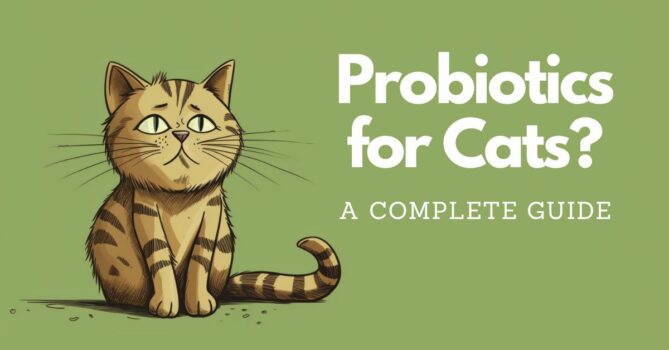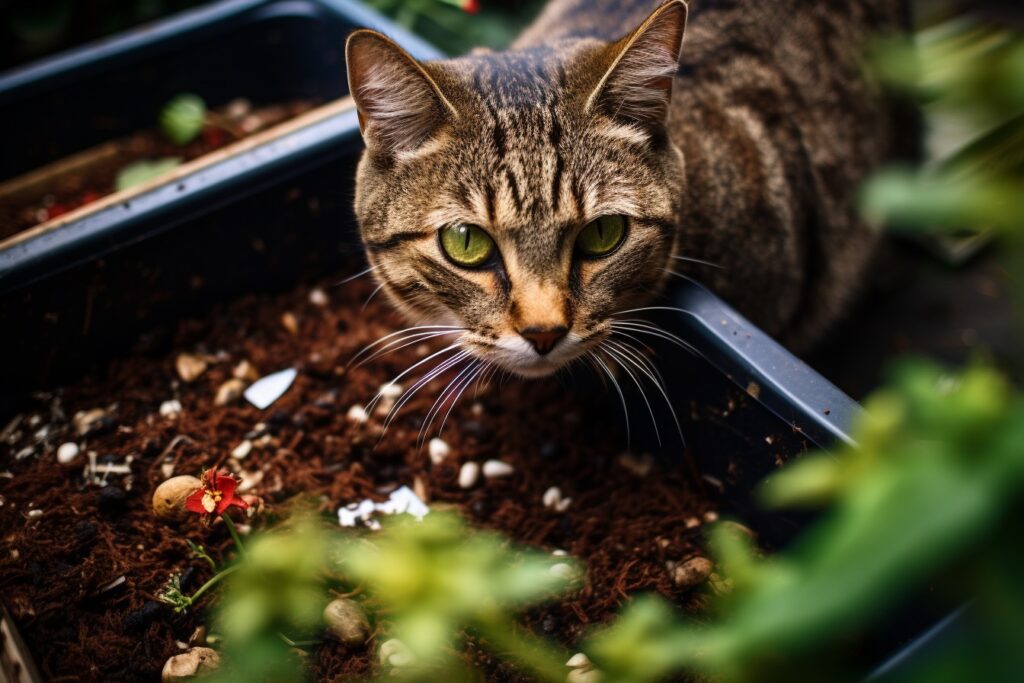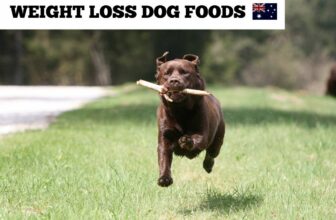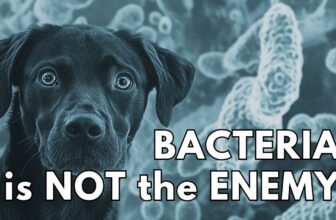Probiotics for Cats

Probiotics will benefit any cat, from kitten to cantankerous old cuddlers, but while researching other articles on the matter I found none of them addressed the real concern – your cat’s main diet.
It’s easy these days to recommend products, and profit from those recommendations. I suppose that’s the nature of the Internet these days, but most of the time this doesn’t really help your cat.
It’s likely putting glitter on a leaky roof and calling it fixed.
Let’s take a look at when and why your cat can really benefit from probiotics, and how you can tackle your cat’s digestive issues properly:
- What are probiotics for cats?
- When will your veterinarian recommend probiotics for your cat?
- Addressing the root of your cat’s digestive problems
- Diet first, probiotics second – Fixing your cat’s issues at the root
- Probiotic supplements for cats in Australia
- Natural probiotics for cats
- What does CFU mean with probiotics?
What are probiotics for cats?
Probiotics for your cat are like a team of tiny superheroes working inside the digestive system.
Imagine these microscopic champions as the guardians of your cat’s gut health. They’re the friendly bacteria that form a protective shield against the forces of digestive imbalance.
When you give your cat probiotics you’re essentially sending in reinforcements to maintain a harmonious balance in their tummy, and those reinforcements help fend off the bad guys – the ones that cause digestive issues.
This is why probiotics, or probiotic supplements, show a real improvement if your cat’s showing signs of intestinal distress, discomfort, flatulence, or diarrhea.
Probiotics (and prebiotic) supplements also help your cat digest their food far more efficiently, or digest more nutrients from the food they’re fed than they would’ve done otherwise.
These are the reasons all cats can benefit from probiotics.
When will your veterinarian recommend probiotics for your cat?
You’re probably here reading this guide because (a) you’ve noticed your cat has a gut issue, or (b) your veterinarian has recommended probiotics for one of the following reasons:
- Gastrointestinal Upset
- Inflammatory Bowel Disease (IBD)
- Dietary Sensitivities or Allergies
- Chronic Constipation
- Colitis
- Stomach Upset when Transitioning Diet
- Stress and Anxiety
What if I told you all the above could also be caused by diet?
What if the reason was as simple as your cat food being made mostly from grains or other starches, when you cat is factually an obligate carnivore who should only have animal-ingredients in their diet?
There are a few other reasons why a vet may recommend probiotics for cats, such as:
- To support the digestive system of your older cat
- After a course of antibiotics, medication, or surgery
Although your vet is right, and a probiotic supplement will very likely help your cat in these circumstances, ask yourself if your vet discussed what you’re feeding your cat.
Most of the time I find a vet will rarely ask what you’ve been feeding your cat. Isn’t that odd, when this would be very useful diagnostic information in diagnosing the root of your cat’s problem?
Most of the time a vet will also recommend an expensive “prescription” brand of cat food, which you’ll find to be also made mostly of grains.
It’s bizarre, isn’t it?
(Well, not really when you know how the pet food industry works…)
Addressing the root of your cat’s digestive problems
If your cat is struggling to digest their food – symptoms including stomach pain, vomiting, diarrhea, lack of appetite, bloat, and flatulence – and you’re feeding a kibble made of cereal grains, particularly wheat, or other carbohydrates, then that’s very likely the cause.
Your cat’s biology isn’t designed to digest these foods.
Itchy skin, patchy skin, yeasty ears, excessive paw licking – these are all symptoms of the same problem. To get a little scientific, this is about the limited fermentation capacity in your cat’s gut, limited amylase production, and all the other stuff years of research has confirmed about why our cat’s should only eat animal matter.
Or in short, your cat’s digestive system is designed for the rapid digestion of meat, not hard to digest grains.
So why are grains used in almost all cat foods I hear you ask?
Or potatoes, tapioca, bamboo, or whatever else?
Well, because it makes a lot more profit.
Right, it’s time to take a pause from your phone or computer, and go and read the ingredient’s on your cat’s food. Then come back here, and we’ll talk about real solutions (with or without probiotics).
Diet first, probiotics second – Fixing your cat’s issues at the root
Your cat needs a diet rich in meat. Preferably meat, organs, raw meaty bones.

There are various ways you can address this, and each will be a step in the right direction:
- Feed a dry cat food which has a better emphasis on meat, and less emphasis on carbohydrates. All dry cat foods contain carbohydrates, so the best you can do is keep them to a minimum. Grain free is, most of the time, the better option.
- If you’re on a budget, continue feeding a dry cat food but mix it with a decent wet cat food, BARF patty, or fresh meat, organs, and meaty bones like chicken necks or wings (cheap at the supermarket).
- Feed a decent wet or BARF food, with some raw meaty bones to chew on (good for your cat’s teeth and health).
- Embark on a journey into raw feeding. If in doubt about getting the balance of meat + organs + bones right, check out brands such as Frontier Pets or Raw Meow which are dried raw which you add water to.
If you’re stumped with choosing a decent cat food, there’s some recommendations here.
Once you’re happier with your cat’s diet you’re most of the way there, so now it’s time to discuss probiotics for cats.
Probiotic supplements for cats in Australia
In Australia probiotics for cats vary greatly in both ingredients and CFU, which is a gauge of the concentration of beneficial bacteria in the supplement.
If you want to understand CFU a little better I will discuss this shortly, but for now let’s take a look at some of the probiotics for cats in Australia:
Big Dog Probiotic
Most probiotic supplements for cats have a CFU count in the millions, but the Big Dog Probiotic is in the billions – 4 billion CFU per 1g.
Despite the name, the Big Dog Probiotic is also suitable for cats, coming in a powder form you can easily sprinkle on their food.
As far as reputation goes I’ve found Big Dog to be very good. They’re an Aussie company and have been around over 2 decades, mostly known for their excellent (and class-leading) raw BARF foods.
You can read more about Big Dog BARF here.
Recommended.
Oh, and at the time of writing, Big Dog Probiotic is the most competitive on price.
Meals for Mutts Probiotic
Meals for Mutts (or MfM) have been a popular Aussie brand of pet food for many years. At the time of writing they have recently had manufacturing issues with their main line of pet foods, but the probiotic supplement they offer is not affected.
The Meals for Mutts probiotic is labelled Intestinal Health Plus Probiotic, and it’s worth mentioning second in this list as it boasts one of the highest CFUs of any probiotic for pets sold in Australia – 90 billion CFU per 1g in fact, so much more than Big Dog Probiotic above.
The probiotic features a dog on the label, but is suitable for both cats and dogs and comes as a powder.
Pro Plan FortiFlora Feline
Pro Plan FortiFlora has 100 million CFU per 1g, so not up there with the two recommendations above, but this is the brand most veterinarians would recommend if your cat is showing symptoms of poor digestive health.
What bugs me about FortiFlora, a Nestle brand, is the main ingredient being liver flavour. I have no problems with liver for a cat, but the issue is the word “flavour” – liver flavour is a different ingredient to liver, and may not actually be liver. The question that leaves us is this – what actually is it?
Nevertheless, if you trust the Pro Plan brand or want to go with your vet’s recommendation, then this might be the option for you, and should still benefit your cat.
FortiFlora, like most probiotics for cats, comes as a powder.
PAW Digesticare
The (Blackmores) PAW brand is very common in Australia so available at many retailers. PAW Digesticare, the probiotic and prebiotic powder supplement has 30 million CFU per 1g.
The ingredients of PAW Digesticare are mostly grains.
Granted they’re fermented, which means they would be more digestible for your cat than regular grains, but it still feels odd to me feeding a carnivorous animal a grain-based supplement. Does it feel odd to you?
Given the lower CFU of both PAW Digesticare and Pro Plan FortiFlora above, you may consider the first two options to be the better bet.
PetzPark Probiotic for Cats
The PetzPark Probiotic states 1.3 billion CFU per scoop, and an average scoop size of 1g. That would put the supplement in a similar ballpark as the Big Dog Probiotic (4 million CFU per 1g), but also at the time of writing slightly cheaper.
The other benefit of the PetzPark probiotic is you can buy a packet specifically for cats, if that matters to you.
The trouble I find with the PetPark probiotic is it’s harder to get hold of.
Natural probiotics for cats
Buying a formulated probiotic for cats (such as the suggestions above) will likely benefit your cat the most. More so if they’re recovering from a gut health issue, anxiety, stress, antibiotics, or surgery.
However, there are great natural probiotics as well.
Here’s a few ideas:
- Fermented foods like plain yoghurt and kefir are good sources of beneficial bacteria, and liked by most cats.
- Bone broth is a wonderful food to give your cat, dog, or yourself. It’s simple to make with a slow cooker and some bones (such as a chicken carcass or even a whole chicken) and a little bit of apple cider vinegar to extract the nutrients from the bones. Bone broth can be a good source of natural probiotics, and will benefit your cat’s health in many ways.
- A raw food diet of meat, organs, and bones has shown to contribute to a healthy gut microbiome.
What does CFU mean with probiotics?
CFU stands for Colony Forming Units.
It’s a unit of measurement used to estimate the number of viable microorganisms, such as bacteria or yeast, in a probiotic supplement.
In the context of probiotics for pets, including cats and dogs, the CFU count is an indicator of the quantity of live and active microorganisms in the supplement. These microorganisms often include various strains of bacteria, such as Lactobacillus and Bifidobacterium – some pet foods in Australia contain bacteria such as this.
But what does that mean?
The CFU count is crucial because it reflects the potency and effectiveness of the probiotic.
A higher CFU count generally suggests a more concentrated and potentially more beneficial product. It’s not always the case though, and a higher CFU count doesn’t necessarily mean better results.
To conclude, probiotics for cats are a good idea if your furball is suffering any kind of digestive issue, from diarrhea to constipation, of if they display any other signs of gastrointestinal issue.
Even if your cat is healthy, some probiotics in the diet can help them digest their food better, more efficiently, and be healthier for it.
What brand of probiotics have you used for your cat, and what success have you had?





